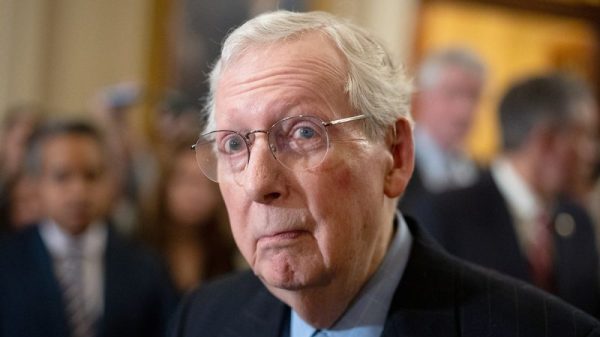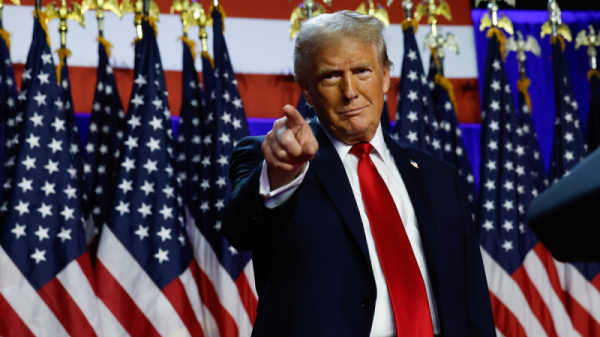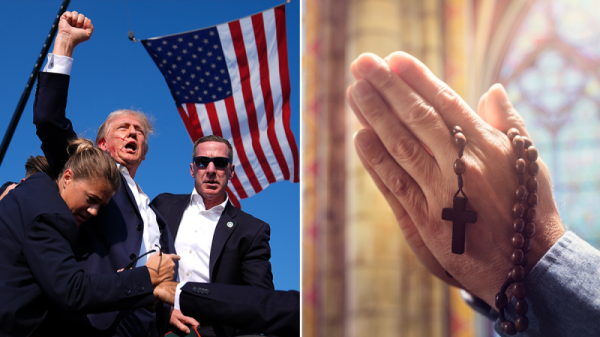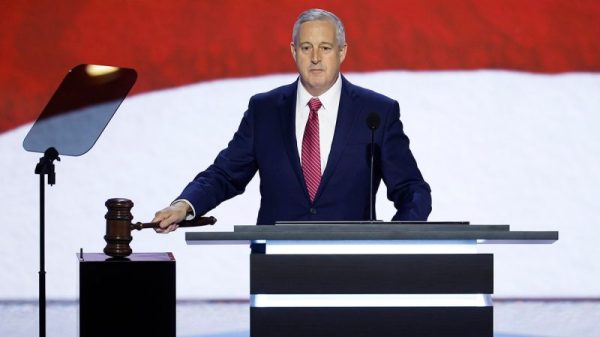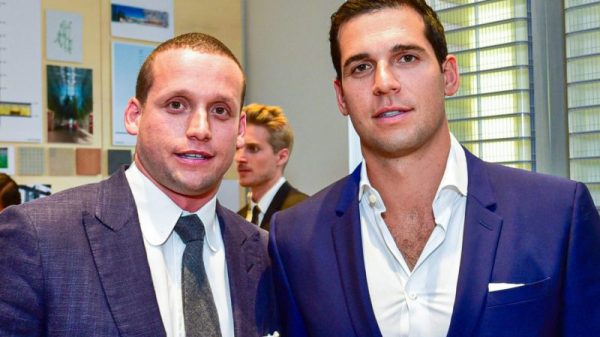The entertainment industry is grappling with how to talk about the war between Israel and Hamas nearly two months after it erupted.
Some in Hollywood say they’re being silenced for speaking out on human rights, decrying what they see as censorship and retaliation in a business anchored in expression. Others say surging antisemitism requires clearer lines between free speech and hate speech, and repercussions for crossing them. People on both sides accuse each other of double standards.
Seema Yasmin.Lucas Passmore
Seema Yasmin, a doctor who has been an on-air medical analyst for CNN, was dropped by A3 Artists Agency for her social media posts about the war, with a Nov. 10 email saying “the agency, as a whole, can’t represent someone who uses certain words” that it didn’t specify. Yasmin said she believes one of them is “genocide,” which she used to describe the Israeli military’s actions in Gaza.
A3 didn’t respond to requests for comment.
“We need to be engaging with one another, especially at this time,” Yasmin said, “so trying to deplatform or take the microphone away from artists, I think it is doing the opposite of that.”
Hollywood saw an initial outpouring of support for Israel following Hamas’ Oct. 7 terrorist attack, with hundreds of high-profile actors condemning the massacre.
Some stars, such as the comedian Amy Schumer and Noah Schnapp of “Stranger Things,” faced early backlash for controversial pro-Israel social media activity. Actor Julianna Margulies drew furor this week after saying on a recent podcast that Black Americans had “been brainwashed to hate Jews,” comments for which she later apologized, saying she “did not intend for my words to sow further division.”
Amid soaring deaths and widespread devastation in Gaza in recent weeks, pro-Palestinian voices in the industry who have criticized Israel are also receiving more blowback.
Late last month, Susan Sarandon was dropped by United Talent Agency, and Melissa Barrera was fired from Spyglass Media Group’s “Scream” movie franchise after their respective remarks on the war. Sarandon’s comments that Jews “are getting a taste of what it feels like to be Muslim in this country” and Barrera’s online posts suggesting Western media bias favoring Israel each drew accusations of antisemitism.
Sarandon later apologized for suggesting that “Jews have been strangers to persecution” and said her goal was to “show solidarity in the struggle against bigotry of all kinds.” Both actors have condemned antisemitism alongside Islamophobia.
UTA confirmed it cut ties with Sarandon but didn’t comment further. Spyglass said, “We have zero tolerance for antisemitism or the incitement of hate in any form.” Representatives for Schumer, Schnapp, Margulies, Sarandon and Barrera didn’t respond to requests for comment.
Lower-profile industry members say they’re also facing fallout for addressing the conflict.
After several Hollywood unions put out statements denouncing Hamas and supporting Israel in early October, a group calling itself WGA for Peace released an open letter objecting to calls for the Writers Guild of America to follow suit, criticizing “pressure campaigns by certain high-profile members of our guilds” on the matter.
The group, whose Oct. 20 letter was initialed by more than 300 people, said later that it chose anonymity because some signatories were “fired, harassed, doxxed, and threatened with blacklisting for speaking out on behalf of Palestinians.”
The Writers Guild of America has seen dissension in its ranks over how the union should respond to the war in Israel.
On Oct. 24, WGA West acknowledged in a letter to members that its decision not to comment on the matter “caused pain,” condemning Hamas’ atrocities as well as antisemitism and Islamophobia. That letter, Deadline reported, said the situation “fell outside the purview of a U.S. labor union representing writers,” adding: “When we made the difficult choice not to make a statement, it was not because we are paralyzed by factionalism or masking hateful views.”
WGA didn’t respond to a request for comment. WGA for Peace, which has repeatedly addressed criticism of its initial letter, told NBC News, “We will continue to fight for those who are being punished for speaking out against violence, hate and oppression.”
Bradley Fischer, a producer behind films including “Shutter Island” and “Black Swan,” is among those in Hollywood who say that a healthy debate requires differentiating between impassioned opinions and abusive language.
“Talking about the crisis in Gaza, the crisis that has afflicted the Palestinian people — there’s absolutely nothing wrong with that, and we should talk about that,” he said, “but putting the blame on Israel, as opposed to Hamas, I think is incredibly irresponsible.”
Fischer added he believes celebrities with large platforms are acting with a “good heart” but should be more responsible.
Earlier this week, Gigi Hadid apologized to her 79 million Instagram followers for a since-deleted post that she said contained “misinformation” claiming Israel was the only country in the world that kept children as prisoners of war.
“I understand that with the power of my platform comes a huge responsibility,” the model wrote, nodding to her Palestinian heritage. “I’m human and I make mistakes. But I also hold myself accountable for those mistakes,” she said, adding that she’d continue “bringing attention to violations of international law and human rights.”
The whipsawing discourse reflects the difficulty of working through complex issues publicly and in real time, especially under a crush of sometimes unreliable information, said Modi Wiczyk, co-founder and co-CEO of the production company Media Rights Capital (MRC).
“What all of the debate over the last 45 days speaks to is more than about antisemitism. I think it’s about the effects of propaganda on our community and the broader world,” Wiczyk said.
However, he said, “There are such things as hate speech. I think that’s different than free speech. I think that’s different than speech you disagree with.”
MRC shelved a Kanye West documentary more than a year ago after the rapper, also known as Ye, repeated conspiracy theories and antisemitic tropes, crossing a clear boundary, Wiczyk said. He said MRC is donating to “organizations on both sides of the aisle” and inviting experts to speak with staffers about the conflict.
MCR co-CEO Modi Wiczyk said misinformation has frustrated constructive debates around the Israel-Hamas conflict.Michael Kovac / Getty Images file
Jonathan Greenblatt, CEO of the Anti-Defamation League, said the group “takes no position on talent being dismissed from movies or shows because of their views” but emphasized that “freedom of speech clearly isn’t the freedom to slander.”
“We will continue to look for opportunities to call people in and to help educate them when they cross the line from legitimate criticism into ugly antisemitism,” he said.
Saira Rao, an author and activist, said she was never informed or invited to weigh in on where the line falls. But she said she was told she’d crossed it in a Nov. 13 call from her literary agent saying she was losing representation from her theater agency, CAA, which declined to comment for this article.
Rao, who said she hasn’t learned what caused the decision, has made incendiary posts criticizing Israel on social media, including one calling Zionists “bloodthirsty” and “genocidal.” Like Yasmin, Rao said she thinks she was dropped because she has used the word “genocide” online.
We have a moral duty to speak up. A lot of us are doing that, and in response people are getting fired.
Author and Activist Saira Rao
The term has caused controversy within and outside Hollywood. The United Nations defines genocide as “a crime committed with the intent to destroy a national, ethnic, racial or religious group, in whole or in part.”
In October, an independent group of U.N. experts stopped short of using the word but condemned what it called the “collective punishment” of Gazans. “There is no justification for violence that indiscriminately targets innocent civilians, whether by Hamas or Israeli forces,” it said.
Israel has said it reserves the right to defend itself from Hamas, a militant group that rejects its existence. Israeli officials have denied genocide allegations and said they were gathering evidence of war crimes by Hamas.
Heated political crossfire is neither unprecedented in Hollywood nor unique to it. College campuses have also seen acrimonious debates about the war, and workplaces from law firms to the CIA have set or clarified guidelines around what public remarks they’ll tolerate from staffers.
“Hollywood has traditionally been involved in all sorts of political and social issues,” said Stephen Zunes, a professor of Middle Eastern and North African politics at the University of San Francisco. But he acknowledged “emotions are raw,” partly “because we are looking at two historically oppressed groups, Palestinian Arabs and Jews.”
“There’s an understandable reason that a lot of people will … look at things as a very black-and-white issue and not really understand the complexities of this long-running conflict,” he said.
Accusations of double standards have been made on both sides.
Allison Josephs, founder of Jew in the City, a nonprofit group focused on improving media representations of Orthodox Jews (a fraction of American Jews), said recent pro-Palestinian rhetoric has been “embedded” with antisemitism.
In a free market system, agents and studios can say what crosses the line.
Allison Josephs, founder of Jew in the city
“If the standard has been that Roseanne Barr lost her show for being racist, and if many actors lost their jobs for sexual assault — and Hollywood is saying we have a standard of things that cross the line — then in a free market system, agents and studios can say what crosses the line,” she said. (Barr later apologized.)
Hussam Ayloush, executive director of the greater Los Angeles area office of the Council on American-Islamic Relations, said the punitive actions in Hollywood reflect a “double standard and selective enforcement.”
“These regulations tend to surface or be invoked predominantly when Israel becomes the subject of such commentary, often with the intention of suppressing valid critiques,” he said. “Rarely do we witness any uproar from these entities or the industry at large when an actor voices concerns about human rights abuses by countries like China, Russia, Saudi Arabia, Iran or even our own country.”
There have been calls for a more forgiving climate, given Hollywood’s history of second chances.
Fischer, the producer, said, “I don’t agree that if someone who puts their foot in their mouth, says something that they regret saying, apologizes for it once they understand that what they said was wrong — that there shouldn’t be a chance to correct that.”
But Rao, at least, continues to stand by her sentiments.
“We have a moral duty to speak up,” she said. “A lot of us are doing that, and in response people are getting fired. Shame on those institutions for silencing people who are doing the right thing.”

